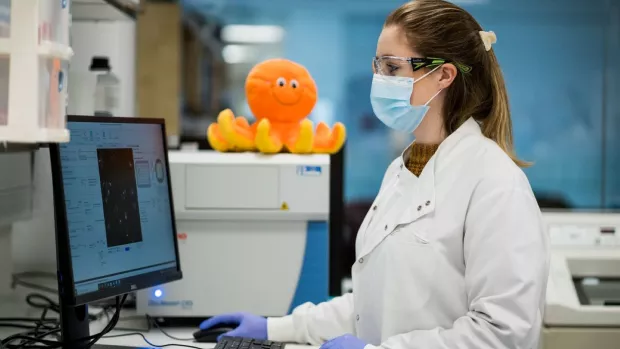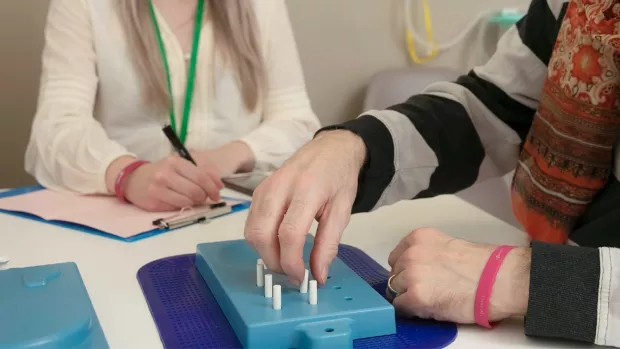
Progress in progressive MS
Professor Alan Thompson is consultant neurologist at University College London, and past scientific chair of the International Progressive MS Alliance. He’s been researching progressive MS for 40 years. We asked him what’s changed and what’s coming next.
We know relapses are caused by the immune system attacking the protective myelin coating around nerves. But do we know what causes disability to get steadily worse in progressive MS?
Disability worsening is linked with the loss of brain tissue, especially nerves. This is called neurodegeneration. For decades we haven’t understood the mechanisms causing neurodegeneration in progressive MS. And if we don’t understand what’s happening in the brain, we don’t know what we’re trying to treat.
Now we’re getting a better grip on the various players:
- You get some inflammation like in relapsing MS
- The body’s natural ability to repair myelin breaks down
- Nerves without protective myelin become more vulnerable
- Processes that normally help nerves stay healthy stop working properly.
Certain cells are involved that we haven’t paid enough attention to before.
Particularly microglia. And a part of our cells called mitochondria. Now we need the master plan of how they all interact. The answer won’t be the same for everyone with progressive MS. It’s a very variable condition – that’s the universal truth of MS.
So are we getting closer to a treatment that can slow down disability worsening in progressive MS?
I think we’ll have a treatment that protects nerves first. We’ll get results of the phase 3 simvastatin trial by 2025. And we’ve had drugs in phase 2 trials showing positive effects – like ibudilast. I’d like to see those taken forward to the next stage.
I hope something that repairs myelin will come after that. Although the cancer drug bexarotene wasn’t well tolerated, it had interesting results. The anti-histamine clemastine has shown a modest effect in optic neuritis (visual symptoms). And there’s interesting work with the diabetes drug metformin happening.
But encouraging myelin repair is challenging. In the past we underestimated how complex this process is. Now we appreciate it more, we know what we’re dealing with.
Reducing inflammation has a role too, we shouldn’t downplay the progress we’ve seen there. Ocrelizumab and siponimod - approved for early primary and secondary progressive MS - slow disability progression by 20-25%. So a modest but positive effect, reminiscent of the first treatments for relapsing MS.
It sounds like things are moving in the right direction. What’s coming up that you’re particularly excited about?
The approach Professor Jeremy Chataway’s taking with Octopus is really encouraging, as is the work of the Progressive MS Alliance.
Visit the Progressive MS Alliance's website
In MS research, there have been times of high energy and times when it’s flagged. Progressive MS is now centre stage. We’ve got a truly high-energy time and we need to make the most of it.



